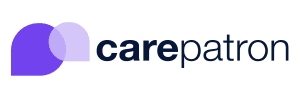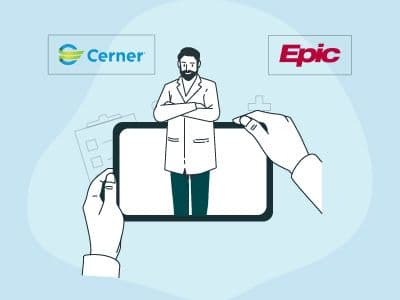Leading Klara alternatives such as Epic, Allscripts, and CureMD provide cohesive, comprehensive platforms as highlighted in user reviews and conversations with physicians. These leading vendors craft integrated solutions comparable to Klara by streamlining engagement with features like secure messaging, patient portals and telehealth. Their software aims to optimize communication workflows based on the unique needs of both physicians and the patients they serve.
The Best Klara Health Alternatives
Select up to 2 products
Compare Features
Feature List |  Klara Health | AdvancedMD | athenaOne | Cerner EMR | DrChrono EHR |
|---|---|---|---|---|---|
Appointment Management/Scheduling | |||||
Patient Portal | |||||
Mobile App | |||||
Telemedicine | |||||
Customizable Forms | |||||
Patient Demographics |
Make decisions with real reviews from real users
Discovering an appropriate Klara Health alternative might be a challenging task, as several options are available in the electronic health record (EHR) software industry. Many healthcare providers trust such tools for accurate record-keeping, patient scheduling, internal communication, and other functions.
While Klara is renowned for excellent patient communication, advanced automation in repetitive tasks, and seamless text alerts to patients, it might not fulfill the unique requirements of every healthcare provider.
Medical industry professionals are often tempted to conduct alternate research due to certain limitations they may encounter. These limitations can include scalability, integration capabilities, advanced customizations, and more.
This article aims to provide you with a detailed analysis of the Klara alternatives, including key features, pros and cons, and pricing information for all ten alternatives.
Let’s get started with exploration and making an informed choice!
Our 10 Best Klara Alternatives To Consider
Software | Unique Advantage | Notable Features |
NextGen Office EHR |
|
|
AdvancedMD EHR |
|
|
SimplePractice |
|
|
Tebra |
|
|
athenaOne |
|
|
Phreesia |
|
|
SolutionReach |
|
|
Luma Health |
|
|
Mend Urgent Care |
|
|
Carepatron |
|
|
1. NextGen Office EHR
NextGen Office EHR is a comprehensive tool that caters to the diverse medical practice requirements of small to mid-sized healthcare practices. It offers great value for managing patient outcomes and overseeing disease treatment for multiple patients.
Compared to Klara, which has a strong patient engagement mechanism, NextGen Office EHR provides an all-in-one solution that includes e-prescribing, customizable templates, and advanced telehealth options, positioning it as a strong Klara alternative.
Top NextGen Office EHR features include:
- Tailored templates
- HIPPA compliance
- Automated invoice generation
- E-prescribing tools
What Are The Pros And Cons Of NextGen Office EHR Software?
Pros | Cons |
|
|
How Much Does NextGen Office EHR Cost?
It offers customized pricing based on practice size and requirements.
2. AdvancedMD EHR
AdvancedMD EHR utilizes cloud-enabled technology, which offers EHR services to medical care providers in medium to large practice sizes. It is known for its strong scheduling tools that enhance operational effectiveness and aid in improving patient experience.
While Klara has an advantage in patient communication, this solution provides robust scalability and advanced reporting tools.
The best AdvancedMD EHR features are:
- Advanced analytics and reporting
- Patient scheduling
- Centralized financial records
- Automated reminder alerts
What Are The Pros And Cons Of AdvancedMD EHR Software?
Pros | Cons |
|
|
How Much Does AdvancedMD EHR Cost?
The vendor provides multiple customized pricing plans.
3. SimplePractice
SimplePractice is a comprehensive practice management solution designed for individual or small healthcare providers, including therapists, counselors, mental health practitioners, and others. It streamlines routine tasks such as appointment scheduling, document management, telehealth, and compliance.
Where Klara focuses more on enhancing patient interaction, SimplePractice EHR is suitable for users seeking a broad EHR functionality system.
Some of the important features of SimplePractice EHR are:
- Telehealth integration
- Adjustable note templates
- Automated billing
- Appointment management
What Are The Pros And Cons Of SimplePractice EHR Software?
Pros | Cons |
|
|
How Much Does SimplePractice EHR Cost?
It offers three subscription plans, including:
- Starter: $29 per month
- Essential: $69 per month
- Plus: $99 per month
Disclaimer: The pricing is subject to change.
4. Tebra EHR
Tebra is a combined EHR software possessing attributes of both Kaero and PatientPop that enables practitioners to govern their clinical and patient experience requirements. It is highly recommended for small- to medium-sized healthcare providers who offer specialties in primary care, pediatrics, psychology, and others.
Tebra EHR is considered one of the leading Klara alternatives due to its ability to aid healthcare service providers in growing and scaling via integrated marketing tools.
The key features of Tebra EHR include:
- Online appointment scheduling
- Marketing tools
- Patient messaging
- Telehealth support
What Are The Pros And Cons Of Tebra Software?
Pros | Cons |
|
|
How Much Does Tebra Cost?
It offers personalized pricing packages based on needs.
5. athenaOne
athenaOne is known as an extensive functionality EHR platform that provides a unique mobile-centric solution for managing practice workflows along with AI-enabled analytical insights. This software is primarily designed to meet the complex needs of multi-specialty providers that are in search of a tool that possesses comprehensive analytics and reporting abilities.
It is considered a top Klara alternative due to its optimized mobile application, which ensures quick and easy access to records and data.
Top features of athenaOne include:
- Mobile platform
- AI-powered reporting
- Appointment scheduling
- Insurance claim management
What Are The Pros And Cons Of athenaOne Software?
Pros | Cons |
|
|
How Much Does athenaOne Cost?
The vendor offers a flexible pricing model.
6. Phreesia
Phreesia is a comprehensive healthcare management system that enables practitioners to automate patient scheduling and enhance operational efficiency. It focuses on offering services to all practice sizes, mainly to the health centers that have a high patient footfall.
Phreesia is an efficient alternative to Klara as it provides an opportunity to smoothen the front-office workflows that include patient admission procedures, payment collection, and data registration.
Some of the notable features of Phreesia are:
- Patient admission form generation
- Automated bill processing
- HIPPA compliance
- Analytics dashboards
What Are The Pros And Cons Of Phreesia Software?
Pros | Cons |
|
|
How Much Does Phreesia EHR Cost?
The vendor offers tailored quotes based on the practice's requirements.
7. SolutionReach
SolutionReach is one of the leading patient engagement solutions that helps medical care organizations manage and improve patient relationships. It mainly targets practitioners who offer services for dentistry, optometry, and other specialties where retaining patients is essential for an ideal treatment process.
SoultionReach is part of our Klara Alternatives list because it goes a step further in patient engagement as compared to Klara by enabling patients to give reviews and participate in tailored surveys for practice enhancements.
The leading features of SolutionReach are:
- Appointment alerts
- Retention centric analytics
- Patient reviews platform
- Online patient surveys
What Are The Pros And Cons Of SolutionReach Software?
Pros | Cons |
|
|
How Much Does SolutionReach Cost?
The platform offers multiple plans with add-ons at custom quotes.
8. Luma Health
Luma Health is a patient retention platform that offers a comprehensive set of features to healthcare providers, ensuring patients stay intact with their care procedures. It is primarily designed for practices of all sizes, including clinics, primary care centers, and multi-specialty providers.
Moreover, it is a leading Klara alternative due to its smart two-way and real-time messaging system, aiding practitioners in not only retaining but also keeping patients in the loop about their progress.
Here are its key features:
- Automated appointment reminders
- Two-way texting tool
- Patient feedback collection
- Integrations with third-party EHRs
What Are The Pros And Cons Of Luma Health Software?
Pros | Cons |
|
|
How Much Does Luma Health Cost?
The vendor offers custom quotes.
9. Mend Urgent Care
Mend Urgent Care is a popular telehealth application that enables practitioners to conduct on-demand and urgent care services. It is highly recommended for urgent care and primary care facility providers. Moreover, it specializes in offering tools for virtual visits, automated appointment reminders, and payment collection.
It is one of the top Klara alternatives in the medical software market because it enables healthcare providers to operate telehealth services seamlessly, a feature that Klara lacks.
Here are some of the best features of Mend Urgent Care:
- Virtual care management
- Safe documents administration
- Automated follow-up alerts
- HIPAA compliance
What Are The Pros And Cons Of Mend Urgent Care Software?
Pros | Cons |
|
|
How Much Does Mend Urgent Care Cost?
It offers practice requirements-based pricing.
10. Carepatron
Carepatron is a specialized healthcare management system that enables medical care providers to create a tailored workflow for their organization. It is primarily designed for smaller practices that offer therapies, counseling, and other specialties.
As compared to Klara, Carepatron places a larger focus on the health center’s internal communication channels to enhance staff collaboration for better patient treatment, placing it as a top Klara alternative.
The top features of Carepatron are:
- Note-taking tools
- Internal task management
- Data storage
- Patient portal
What Are The Pros And Cons Of Carepatron Software?
Pros | Cons |
|
|
How Much Does Carepatron Cost?
It offers four plans as follows:
- Free: $0
- Essential: $19 per month
- Plus: $24 per month
- Advanced: $29 per month
Disclaimer: The pricing is subject to change.
How We Chose Our Klara Health Alternatives?
Our selection process was thorough and centered around evaluating several key aspects:
- User feedback: We analyzed real-world reviews to get an honest look at user experiences
- Key features: Special attention was given to unique functionalities, such as customization options and integration with other tools
- Industry fit: We considered how well each solution aligns with the needs of specific industries and different practice sizes
- Ease of use: User-friendliness was a priority from setup to daily use, ensuring it works seamlessly for teams of all sizes
Selecting The Best Klara Alternative
Finding the right alternative for Klara starts with identifying the specific needs of your practice. Take a closer look at any pain points in your current system, such as missing features, integration issues, or lack of scalability. Then, evaluate the features of each alternative, try out free demos or trials, and check user reviews to make sure it’s the right fit for you.
Switching to a new platform can bring significant benefits—streamlined workflows, enhanced efficiency, and improved patient experience.
Need tailored suggestions? Contact us at (661) 384-7070, and we will help you make a well-informed decision.









